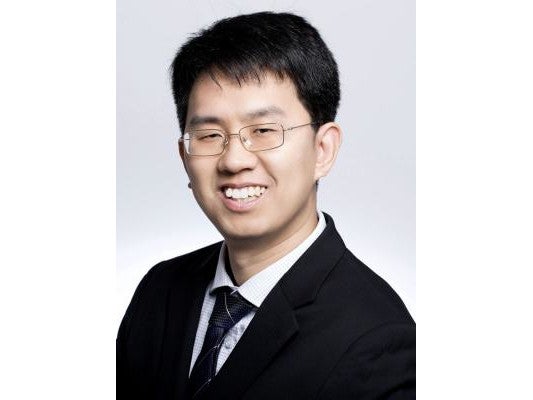
The MSE department welcomes new new Assistant Professor, Dr. Wei Bao. Dr. Bao graduated from Peking University (Physics + Chemistry minor), continuing with MS in Mechanical Engineering at UCLA and concluding with PhD in MSE at UCB. Some highlights of his PhD research include first authored Science and Nature Communication articles and recognition of his excellence in the area of nano-optics and 2D materials by 3 major student awards: The MRS Graduate Student Gold Award in 2015, the Nanometer Scale Science and Technology Division Student Award from the AVS, and an R&D 100 Award (R&D Magazine 2013).
Dr. Bao continued to demonstrate his research excellence as Postdoctoral Researcher at UCB in the group of Xiang Zhang, Ernest S. Kuh Endowed Chair. In 2019 Dr. Bao started his independent research career as an Assistant Professor at U. Nebraska Lincoln. Quite extraordinary, despite COVID emergency, Dr. Bao career flourished to new heights with groundbreaking advances in the area of quantum photon-photon and photon electron interaction, very significantly involving demonstration of quantum effects relevant to quantum information and quantum computing at room temperature, thus with significant broad practical/engineering promise, as opposite approaches based of quantum effects manifesting themselves only at cryogenic conditions. Highlights of his research at Nebraska include 3 Nature publications (Nat. Commun., Nat. Mater. and Nat. Photon.) and ~ 2.5 millions of research funds he raised including single PI NSF Career Award, and two ONR awards.
At RPI, Bao is poised to continue and further build a career at RPI in the broad area of quantum materials and for quantum information and quantum computing applications. His specific current activities are (i) halide perovskite and 2D materials-based quantum simulator (NSF CAREER Award), cavity vacuum fluctuation dressed matter (ARO pending), metasurfaces for quantum photonic simulation (NSF EPSCoR), and quantum-inspired photonic crystal lasers (ONR regular and DURIP grant supported). All these activities, along with numerous new possibilities arising from his interactions with experimental and theoretical efforts at RPI are intimately connected areas of growth and future associated with quantum materials, photonic based quantum communication with application of quantum computing as well as to microchip communication technologies.
